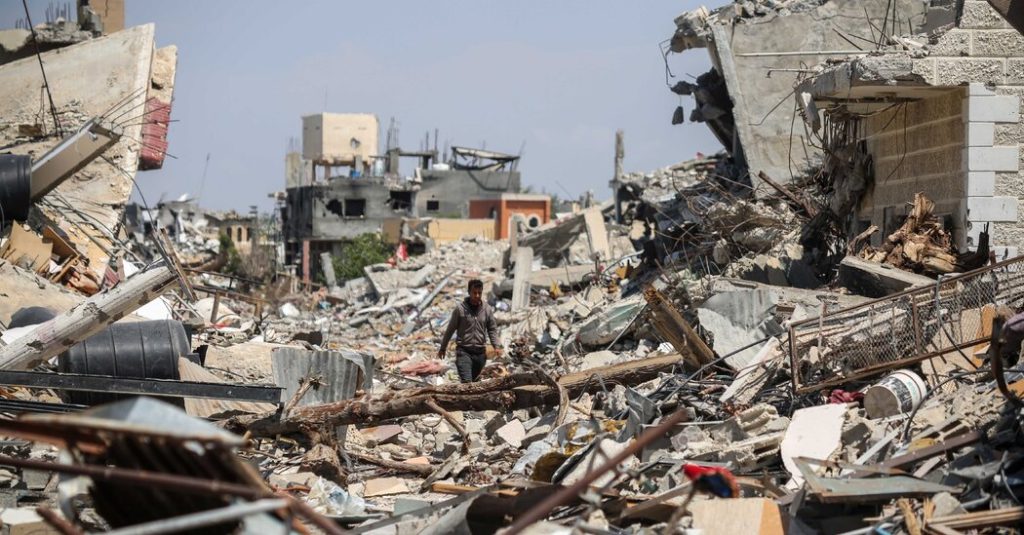In a case at the International Court of Justice in The Hague, Germany defended itself against accusations from Nicaragua that its arms sales to Israel were abetting genocide in Gaza. Germany argued that most of the equipment supplied was nonlethal and that it has been a significant donor of humanitarian aid to the Palestinians. The case has raised questions in Germany about its unwavering support for Israel, described as a “national reason for existence,” given the mounting death toll and humanitarian crisis in Gaza. Some officials have started to question whether this support has gone too far.
Germany’s lawyers dismissed the allegations brought by Nicaragua as having no basis in fact or law, emphasizing that the case rested on an assessment of Israel’s military conduct, despite Israel not being a party to the case. Nicaragua had asked for emergency measures ordering Germany to halt its support of Israel, accusing Germany of facilitating genocide against Palestinians in Gaza. Some German media criticized Nicaragua’s accusations, highlighting the human rights abuses committed by Nicaragua’s president Daniel Ortega and questioning his credibility in campaigning for human rights.
Germany is Israel’s second-largest arms supplier after the United States, with approved military equipment valued at over 326 million euros in 2023. The case in The Hague has coincided with growing concerns in Berlin that unconditional support for Israel has strained Germany’s relationships with other countries, particularly amid global outrage over the civilian death toll in Gaza. Analysts suggest that Germany is slowly toughening its stance toward Israel, partly due to criticism from the United States over Israel’s conduct in the conflict.
The case at the U.N. court has provided an opportunity for some Germans to express their discomfort with Israel’s offensive in Gaza, sparking a debate on the balance between defending democracies like Israel and ensuring that international humanitarian law is upheld. Despite concerns over potential antisemitism, there is a growing recognition of the need to critically engage with Israel’s actions. Germany’s Foreign Minister has emphasized the importance of abiding by international humanitarian law even in times of war, and the court case has highlighted the plight of Palestinians to ordinary Germans.
The proceedings in The Hague marked the third time this year that the U.N. court became a platform for nations to pressure Israel and support Palestinians. Legal experts have questioned the court’s jurisdiction in the Nicaragua case, with Germany arguing against its validity. The German government has emphasized its support for the rights of the Palestinian people, alongside Israel’s security, and highlighted its contributions to humanitarian aid for Gaza. Germany’s lawyers refuted claims of increased weapons supplies to Israel following the Hamas attack and presented data on the nature of approved military exports since the conflict escalated. The outcome of the case is awaited with implications for Germany’s stance on Israel and its commitment to international humanitarian law.


